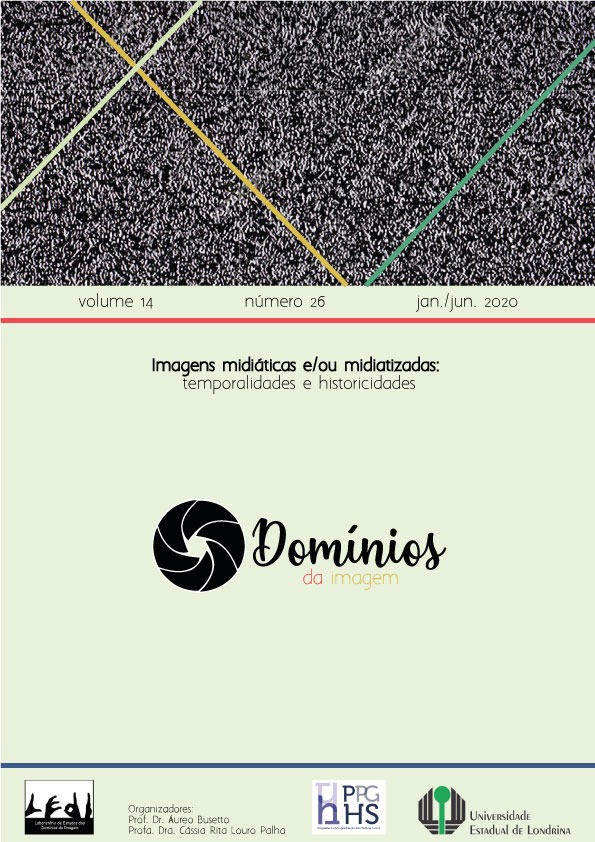Representation of the other: analysis of the film "Alladin" from the point of view of orientalism
DOI:
https://doi.org/10.5433/2237-9126.2020v14n26p138Keywords:
Orientalism, Gender, Postcolonial Studies, Representation, Cinema.Abstract
The main goal of this article is to historically analyze and reflect the movie Aladdin (2019), as a means distinguish how the orientalism and the Feminism discourse are present on its narrative. The Walt Disney Pictures, very popular nowadays, has countless pieces which, more than box-office successes, also act reinforcing gender, identity and social-role normalization. Therefore, those pieces spread ideologies and absorb current discourses in their context with marketable agendas, thus also exerting an influence on children and youth. Aladdin legitimates power relations and, despite its limitations, allows us to analyze the exotic portrayal of the Middle East, as well as the struggle of Princess Jasmine in making herself to be heard, which problematizes a westernized character. Thus, the present article aims at establishing the hypothesis that Aladdin, despite presenting as emancipator, eventually strengthens ethnical stereotypes of the Arabic people, the representation of the “Other” and the standardization of eastern women.Downloads
References
ABU-LUGHOD, Lila. Do Muslim Women Need Saving?. Massachusetts: Harvard University Press, 2013.
AS MIL e uma noites. Versão de Antoine Galland. Tradução de Alberto Diniz. Apresentação de Malba Tahan. Rio de Janeiro: Harper Collins, 2017. 2 v.
ALADDIN. Direção de Guy Ritchie. EUA: Walt Disney Pictures, 2019. 1 DVD (128 min).
ALADDIN. Direção de Ron Clements e John Musker. EUA: Walt Disney Pictures, 1992. 1 DVD (90 min).
BEAUVOIR, Simone. O segundo sexo: fatos e mitos. 3. ed. Tradução de Sérgio Milliet. Rio de Janeiro: Nova Fronteira, 2016.
BHABHA, Homi. O local da Cultura. Belo Horizonte: Editora UFMG, 1998.
BONNICI, Thomas. Introdução aos estudos pós-coloniais. Mimeses (Bauru), Bauru SP, v,19, n.1, p. 7-24, 1998.
BORGES, Jorge Luis. Obras Completas (1923-1972). Buenos Aires: Editora Emecé Editores, 1984.
BORGES, Jorge Luis. Histórias da Eternidade. Rio de Janeiro: Editora Globo, 1986.
CHAKRABARTY, Dipesh. History as Critique and Critique(s) of History. Economic and Political Weekly. 14 Sept, 1991, p. 2162-2166.
FERRO, Marc. Cinema e história. 2. ed. Tradução de Flávia Nascimento. São Paulo: Paz e Terra, 2010.
FIGUEIREDO, Vera Lúcia Follain. Narrativas migrantes: Literatura, Roteiro e Cinema. Rio de Janeiro: Editora PUC-Rio/ 7Letras, 2010.
FOUCAULT, Michel. Microfísica do poder. Rio de Janeiro: Edições Graal, 1979.
FOUCAULT, Michel. A ordem do discurso. Tradução de Laura Fraga de Almeida Sampaio. São Paulo: Editora Loyola, 1996.
GIORDANO, Cláudio. História d’As Mil e uma noites. Campinas, São Paulo: Editora Unicamp, 2009.
MAYR, Ernst. O desenvolvimento do conhecimento biológico. Tradução de Ivo Martinazzo. Brasília: Editora UnB, 1998.
NYE, Joseph Jr. O paradoxo do poder americano. São Paulo: Editora Unesp, 2002.
POUCHEPADASS, Jacques. Les Subaltern Studies ou la critique postcoloniales de la modernité. L’Homme. Revue Française d’Anthropologie. nº. 156, p. 161-185, 2000.
SABBAGA, Julia. Aladdin: Como o live-action atualizou a trilha sonora clássica. Disponível em: https://www.omelete.com.br/musica/aladdincomo-o-live-action-atualizou-a-trilha-sonora-classica#6 Acesso em: 26/06/2020 às 14h48.
SAID, Edward. Orientalismo: o Oriente como invenção do Ocidente. Tradução de Tomás Rosa Bueno. São Paulo: Companhia das Letras, 1990.
SPIVAK, Gayatri. Pode o subalterno falar?. Tradução de Sandra Regina Goulart Almeida, Marcos Pereira Feitosa, André Pereira Feitosa. Belo Horizonte: Editora UFMG, 2010.
SUAREZ, Ana Luisa. The Evolution of Disney films from Snow White to now. Disponível em: https://www.hollywood.com/movies/the-evolution-ofdisney-films-from-snow-white-to-now-60557826/#/ms-22719/1 Acesso em: 30 jun. 2020.
Downloads
Published
How to Cite
Issue
Section
License
Domínios da Imagem adopts the Creative Commons Attribution 4.0 International License, therefore, the copyrights related to the published articles belong to the author(s), who grant the journal the exclusive right of first publication.
Under this license it is possible to: Share - copy and redistribute the material in any medium or format. Adapt - remix, transform, and build upon the material, giving due credit and providing a link to the license and indicating if changes were made.











 The works in this journal are licensed under Creative Commons .
The works in this journal are licensed under Creative Commons .